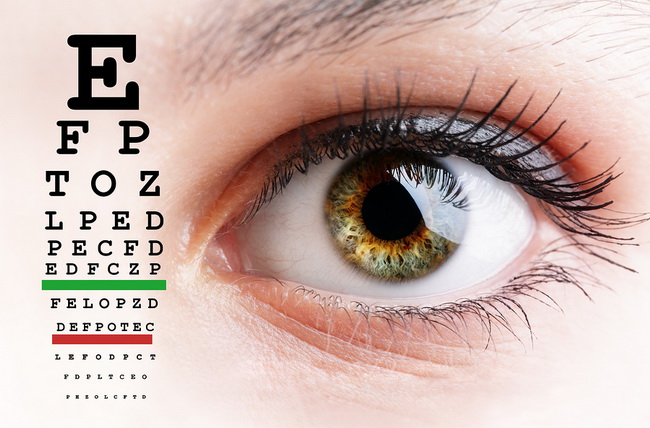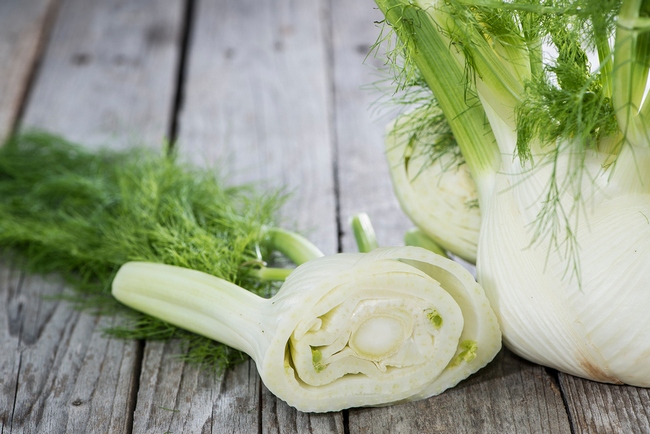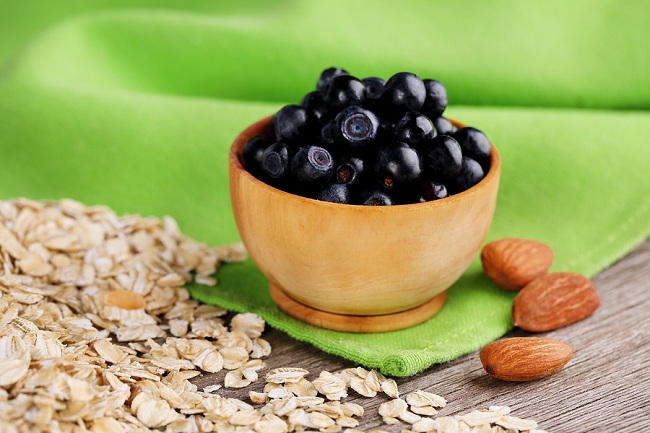- Make It Yourself Lavender Heart-Shaped Bath Bombs!
- 20 Things You Never Knew About “Down There”
- 12 Best Foods For Those Suffering From Arthritis Pain
- 12 Personal Hygiene Mistakes Almost Everyone Makes (Mom Never Told You About #4!)
- 15 Medicinal Plants And Herbs From The Cherokee People
- 12 Mind-Blowing Benefits Of Drinking Coconut Water During Pregnancy
- 12 Outstanding Winter Foods That Won’t Fatten You Up Like A Christmas Turkey
The Best 12 Herbs to Keep Eyes Healthy and Disease Free

Photo credit: bigstock.com
Our eyesight is one of our most treasured senses. From the moment we wake up and see the alarm clock we observe nature, appreciate art, watch various monitors, and connect with other people. Until we close them at night, we are constantly using our eyes to adjust, observe, and appreciate the world around us. We spend money on making them look pretty or to draw attention to them through makeup, colored contact lenses, and even anti-wrinkle creams!
We use our eyes so much and are willing to spend our hard earned money to improve their looks, so doesn’t it make sense that we should protect our eyes as well? We can do that by wearing sunglasses and hats when we are outdoors in the sun, managing out stress, avoiding smoke, and eating a healthy, organic diet.
You might also want to consider incorporating some medicinal herbs into your diet as well, especially if you have a family history of eye problems such as macular degeneration or cataracts. Whether you are looking to support healthy eyesight or help to improve it, we have 12 of the best herbs on the planet that can help you to do exactly that.
1. Cannabis
Well, you weren’t expecting that one, now were you? The truth is, marijuana contains cannabinoids, which, among its many benefits, reduces pressure in the eyes. This is especially important for those with glaucoma or who have a family history of glaucoma. In studies done involving humans, subjects who smoked marijuana had significant pressure reduction in the eyes which lasted as long as 4 hours. Other studies have tried other methods besides smoking including an oral extract, inhaled via other methods, or intravenously injected.
Although these methods were also successful, there were a few side effects, including reduced blood pressure, dry eyes, pink eyes, and, well, that altered state of mind. (Well, not everyone would consider that a negative side effect.) However, the identification of cannabinoid receptors for the eyes has piqued interest in the development of eye drops.
2. Eyebright
The name alone tells you a great deal about this herb. It actually gets its name from the flowers that look like eyes. This herb is a powerful medicine when it comes to preserving eyesight. Studies have shown what has been believed for years: that this herb soothes itchy or red eyes, such as those suffering from conjunctivitis. Another study used 12 general practitioners and ophthalmologists in Europe that administered a single dose of eyebright in an eye drop form to those suffering from conjunctivitis. Complete recovery occurred in 81.5 percent of these subjects and there was significant improvement in another 17 percent.
3. Omega-3s
OK, so technically this is not an herb, but this substance definitely deserves mention here. These essential fatty acids are anti-inflammatory and help to maintain the fluidity of cell membranes, as well as protect the retina from oxidative damage. Consuming higher levels of fish and fish oil (both EPA and DHA) can reduce the risk of macular degeneration. Studies have shown that consuming plenty of omega-3 fatty acids can help reduce dry eye syndrome.
Continue to Page 2

Photo credit: bigstock.com
4. Gingko Biloba
This herb has been used for centuries for problems with the central nervous system as well as a remedy for eye problems. Ginkgo is a selective vascular dilator that increases circulation and blood flow to the back of the eye. Ginkgo has been associated with improvements for those suffering from both glaucoma and macular degeneration. Researchers in Korea found in a study done in 2012 that gingko biloba extracts applied to 332 subjects with normal tension glaucoma, had improved vision.
5. Goldenseal
Most people think of goldenseal as a natural antibiotic. Scientists show us that this ancient herb, used by the Native Americans for hundreds of years, has anti-inflammatory, astringent and antibiotic compounds that can be terrific when it comes to improving eye health. When used as eyewash, this herb is super effective at treating eye irritation, and stopping infections such as staph, and trachoma.
6. Milk Thistle
This herb has so much to offer besides supporting a healthy liver. However, weak eyesight or blurry vision is sometimes a reflection of our liver health. This might mean that what is bad for your liver will be bad for your eyes. The active ingredient in milk thistle that works so well for the liver, silymarin, are also good for the eyes. Your liver stores fat soluble vitamins and glutathione, both of which are used to repair the eyes. Research shows that milk thistle can inhibit a compound called reductase, which play an important part in the deposit of sugar in the eyes of those suffering from diabetes. So consuming milk thistle will help both your liver and your eyes, which tend to rely on one another.
Continue to Page 3

Photo credit: bigstock.com
7. Grape Seed Extract
Over the last time grape seed extract has been greatly discussed as a super healthy benefit that can help our bodies in numerous ways. One of the ways grape seed extract can help our eyes is through its numerous phytochemicals, including flavonoids, linoleic acid, vitamin E, and oligomeric proanthocyanidins. These compounds work great for those with cataracts, diabetic retinopathy, macular degeneration, and even simple eye strain. Oligomeric proanthocyanidins are especially well known for their antihistamine and antioxidant compounds, which are known to improve overall eye health.
8. Fennel
Fennel has long been said to provide relief from watery or inflamed eyes, as well as strengthen them. Many people use fennel tea as a as an eyewash for more serious conditions, such as glaucoma or cataracts. One study done in 2000 showed that one drop of fennel aqueous seed extract had a reduction in intraocular pressure for those with glaucoma. This means fennel might one day be a super anti-glaucoma medication or eye drop solution in the near future.
9. Turmeric
Turmeric is well known for its anti-inflammatory and medicinal benefits in many areas, and that includes the eyes. This popular spice encourages eye health by reducing the oxidation of the lens of the eye. Research shows that the anti-inflammatory compounds in the active ingredient in turmeric, curcumin, can help relieve dry eye syndrome.
Continue to Page 4

Photo credit: bigstock.com
10. Saffron
This herb is similar to fennel in that it has also been linked to improved eyesight and improved results for those with cataracts. Some researchers talk about this herb as being a possible key for the prevention of loss of sight among the elderly. Several clinical trials have shown tremendous results for those suffering from early stage macular degeneration as saffron improved the retinal flicker sensitivity levels.
11. Bilberry
Research has shown that the anthocyanosides in bilberry can boost the production of pigments that help the eyes adapt to changes in lighting. This is something that the British pilots of World War II knew years ago. They used to consume the fruit from bilberry bushes regularly because it helped to improve their night vision. Anthocyanosides are known for their antioxidant and anti-inflammatory compounds. This herb is super beneficial for many types of eye disorders including macular degeneration, reducing inflammation of the retina, and retinopathy. This herb can offer 10 times the antioxidant power of vitamin C and more than 50 times the power of vitamin E.
SEE ALSO: Top Home Remedies to Improve Eyesight
12. Green Tea
Green tea is well known for containing high levels of antioxidants and tannins, but did you know that it also contains caffeine, which can help to shrink the blood vessels that are the reason for dry eyes and puffy eyes? Placing a teabag over the eyes can be super effective when it comes to reducing the puffiness and fluid buildup around the eyes. Studies have shown that green tea also contains powerful compounds called zeaxanthin, lutein, vitamin C, and vitamin E, which offer powerful protection from numerous eye disorders. Lutein and zeaxanthin are carotenoids that make the pigment for the macula, an area at the back of the eye that is key to our vision. These carotenoids filter out damaging blue light as well as ultraviolet light. Studies have shown that people who consume diets that have high levels of lutein and zeaxanthin have lower risks of macular degeneration.
Herbs are not intended to be the sole support for eye health, but to merely serve as a compliment to proper eye hygiene, a healthy diet, and regular eye examinations. Some eye diseases are very slow to progress and many not be noticeable until the disease has become severe. Always consult with your optometrist and get regular eye exams.
References:

































